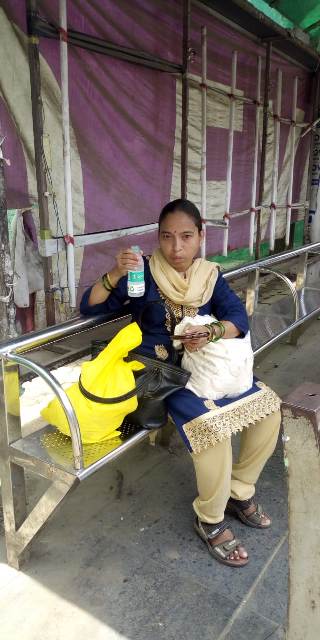By Sudeep Gupta and Joy Sharma, Founding Partners, Impactify
For a long time now, the social sector has been facing critical issues pertaining to funds – a lack of it to be precise. Regardless of the fact that the social sector’s intent and goals are sincere, the reality is that it faces a huge challenge when it comes to executing projects and programs on a large scale.
Moreover, limited organizational and managerial expertise within a majority of non-government organizations (NGOs) leads to a situation wherein money is constantly poured into projects without actually measuring the impact.
Gaining access to the right donors and adequate funds, then, becomes a huge challenge for NGOs. Traditionally, there are four sources of funding that NGOs have access to. The first source is the government, which allocates a percentage of the annual budget each year towards social development projects and programs. The second source includes sponsorships and donations from individual donors and HNIs, wherein the nature of funding is usually philanthropic and acquired through less than formal means.
The third source of funding is through international aid agencies, which until the last couple of years accounted for a large portion of the funds coming into the social sector. However, over the past few years, access to funding from international organizations has been restricted to a handful of NGOs following the implementation of the Foreign Contribution (Regulation) Act, 2010, which regulates foreign funds received by NGOs and entails stringent reporting of how they are utilized.
As a result, the amount of funds received by the Indian social sector from international agencies fell to INR 6,499 crore in 2016-17, from the INR 15,299 crore it received in 2014-15.
After the corporate social responsibility in India mandate in the Companies Act, 2013 that came into effect since 2014, there is a new available pool of funds for the social sector, which is the funding from corporates in the form of money allocated by them for their corporate social responsibility (CSR) projects.
In FY2016-17, the total corporate social responsibility in India spend reached INR 13,465 crore across 21,117 projects. This fund size is expected to grow to INR 20,000 crore over the next three years, according to a report by the Indian School of Development Management (ISDM).
Typically, for NGOs, access to funds from the government or aid agencies is driven by an application process which includes creating a basic project proposal, its area of focus, etc. and on the condition that they comply with guidelines and policies laid down by the government.
But with the size of international funds reducing and government funding not being adequate to scale projects, corporate sponsorship is emerging as a valuable source of funds for the social sector. However, corporates require project proposals from NGOs to offer a well-defined business case along with KPIs, expected outcomes, quantify the impact, provide detailed timelines, etc. NGOs need to learn new skills NGOs as well as adopt new organizational practices to meet the requirements of corporate sponsors.
NGOs usually face challenges in complying with these requirements due to the fact that there is no supportive ecosystem for them, nor any specific systems and tools to guide them. More importantly, the limited funds they have access to do not allow them to establish new systems, acquire technology, or hire highly qualified resources.
Although they do have access to consultants and subject matter experts to guide them, these resources also command a significant sum in fees for their services, leaving little money to be invested towards capacity building.
Additionally, corporate sponsors often face problems when working with NGOs in the absence of reliable reporting and monitoring mechanisms. Instituting such mechanisms requires significant effort, time, and money, which they cannot allocate within their corporate social responsibility in India budgets.
CSR programs have certain financial metrics associated with them which are reviewed by the company board. On the other hand, reporting the financial and social impact of CSR programs to the government has also become mandatory for companies.
With limited resources to make strong strategic plans and monitor impact, NGOs encounter several challenges which end up diminishing the real impact that they can create in the society. The biggest reason behind this is a huge resource gap – both financial as well as intellectual – which further widens due to a lack of funding opportunities available to NGOs.
What are the solutions to these challenges?
Some of the biggest challenges which faced by the social sector can be addressed through the following:
Capacity Building
Consistent capacity building and training are crucial to enabling NGOs to make their teams more efficient by equipping them with new skills, which includes working with the latest technology. The teams working on projects for specific sub-sectors must also be trained on how to approach program execution in a particular geography or area like education, healthcare, sanitation, etc. This will make them capable of tackling any challenges efficiently, while managing costs and budgets.
Organizational Capability Building
Besides building capacity among the people, NGOs also need to institutionalize systems and processes. Technology can play a critical role here in providing the necessary tools that can help organizations establish these systems. Also, technology is a critical necessity in the present age when the corporate sector and the government have placed a major emphasis on digitization.
Today, it isn’t enough for NGOs to simply make do with basic Internet or email. Rather, they need specific technological tools to organize workflows, plan projects, and map out a detailed strategy to execute them. Most NGOs in the social sector do not utilize current technologies that can facilitate more efficient communication and reporting across all stakeholders.
Managerial and Subject Matter Expertise
The ability to reach out to experts for managerial guidance whenever required during a project, to optimize NGO operations, or define the KPIs, is extremely valuable. Access to qualified experts ensures confidence in donors, and create a strong case for them to contribute to projects.
NGOs will become more streamlined and efficient. From identifying opportunities, to creating concept notes, and detailed proposals, experts can help define the aims and objectives, metrics, and methods of undertaking projects.
On the other hand, the challenges that require the most amount of effort, time and money from corporates are, one, identifying the right partner NGOs with the necessary with experience and expertise to help execute programs; and second, finding innovative ways to monitor implementation of projects and measure the impact.
For-profit social ventures like Impactify, are providing NGOs as well as corporates the necessary support and expertise to enable them to plan, report, and monitor their efforts using technology as a tool to assist them with the same.
These are scalable and cost-effective tools that not only enable NGOs to create detailed strategic plans for projects and budget them, but also measure and evaluate their impact efficiently and consistently.
A version of this column first appeared in the April 2019 edition of our print magazine. To grab a copy, click here
 Sudeep Gupta and Joy Sharma are engineers by qualification and hold management degrees from IIM and the University of Michigan (USA), respectively. Having worked with various governments, development organizations, and private sector entities across the Middle-East, Africa, Europe, Americas, and Southeast Asia, the partners have brought the exposure of global best practices to India to support the social sector in delivering greater impact.
Sudeep Gupta and Joy Sharma are engineers by qualification and hold management degrees from IIM and the University of Michigan (USA), respectively. Having worked with various governments, development organizations, and private sector entities across the Middle-East, Africa, Europe, Americas, and Southeast Asia, the partners have brought the exposure of global best practices to India to support the social sector in delivering greater impact.
Views of the authors are personal and do not necessarily represent the website’s views.
Thank you for reading the column. In addition, your thoughts and inputs will genuinely make a difference to us. Please drop a line and help us do better.
Regards,
The CSR Journal Team












